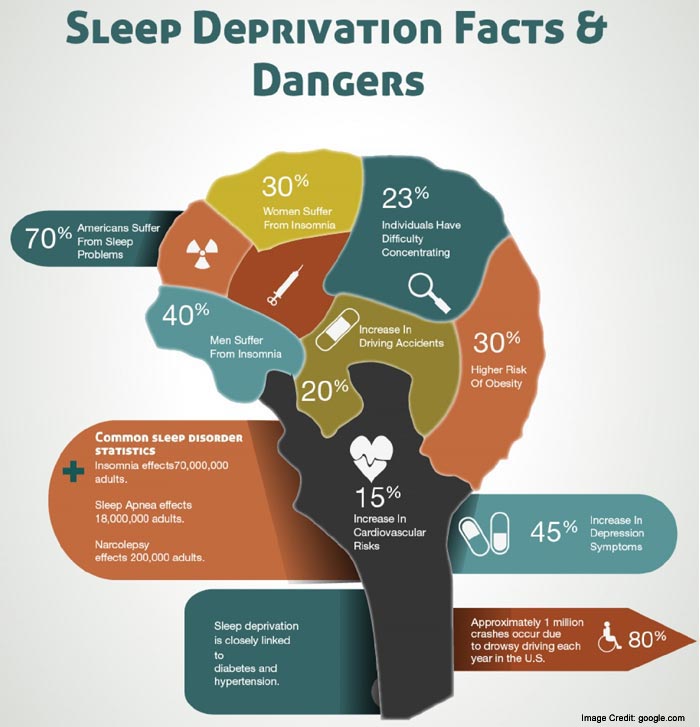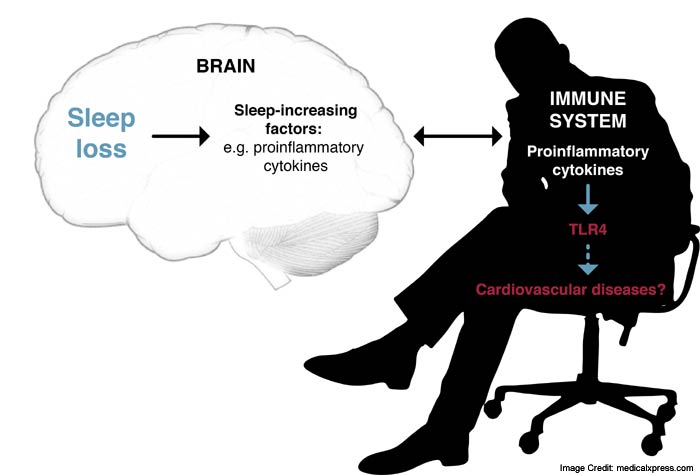
Sleep is overlooked as one of the most productive strategies for both health and weight loss. We have been trained to cut out sleep as the best way to “get it all done.” Research has proven to us that lack of sleep over a period of time will lead to health complications including weight gain, obesity and related chronic diseases like diabetes.
One night of poor sleep can negatively impact insulin levels resulting in increased caffeine, starch and sugar cravings as quick energy sources. These unhealthy habits decrease the body’s ability to burn fat, in turn, increasing its ability to store adipose (fat) tissue. The concern is that it is common in our culture to learn to live off of poor sleep for years or even decades and sometimes the health and metabolic problems do not rear their head until later on in life.
The most common diseases associated with long term sleep deprivation include:
- Type 2 Diabetes – due to weight gain associated with sleep deprivation and hormone imbalances.
- Sleep Apnea – becoming more common in Americans also related to being overweight and obese.
- Dementia – the brain starts to become fatigued and stressed resulting in memory loss and poor cognitive function.
- Obesity – related to hormone imbalances and searching for false energy sources and pleasure from sugar, caffeine, etc.
- Adrenal Fatigue – long term sleep deprivation can stress the adrenals resulting in a hindered ability to produce hormones such as cortisol at the right times and in the right amounts.
- Chronic Pain – Sleep is our body’s time to ultimately repair our cells at every level if muscles, joints, and nerves are not being nourished and repaired daily pain and inflammation will be a result.

Short-term sleep deprivation can have these negative effects also:
- Decreased Productivity. Reduces performance and ability to stay alert and focused.
- It can age your brain, decreasing your memory and cognitive abilities. New moms often refer to their brains as “mommy’s brain” because they are in a constant sleep deprived state, often forgetful and their ability to process information is reduced.
- Sleep can divide relationships with loved ones. If one person cannot sleep they tend to leave the room, creating a divide in the opportunity to have physical touch and intimacy.
- Reduced Quality of Life: Unable to sit through a movie or TV show, falling asleep in front of the television, or being too tired to get out of bed.
- Increased Risk for injury: Losing focus when operating your vehicle or if you have a physical job, a piece of equipment at work.
Sleep Deprivation Causes Dangerous Inflammation
Lack of sleep even short term can trigger our immune system to damage healthy body tissue and organs. Sleeping less than 7 hours per night can signal inflammatory markers in the blood, such as C- reactive protein (CRP) and interleukin – 6 (IL-6) which are the markers correlated with chronic diseases like heart disease, hypertension, depression, and diabetes. Tissue damaging inflammation is triggered, creating an autoimmune response resulting in inflammatory disorders like arthritis. Although inflammation is our natural metabolic response to protect itself, regular signaling is when it becomes dangerous and increases disease risk.

Sleep is often traded out for mindless activities like social media, television watching, catching up on e-mails, etc. This only increases stress levels and inflammation markers. Health experts recommend 7-8 hours of quality sleep per night to avoid the increased risk of chronic diseases related to sleep deprivation.
Each individual is unique, and the solutions to improve sleep are also individual. Making small changes and trial and error is the best mindset to have when trying to improve your sleep.
Poor Stress Management can Cause Poor Sleep and Weight Gain
Excess cortisol is produced when stress levels are high. This excess hormone production puts the body in a “fight or flight” mode.
High amounts of cortisol decrease melatonin (the sleep hormone) and serotonin (the good mood hormone) production. It was our body’s natural “primal” way of fighting off danger. Now stress is not a predator, it is our life, work, etc. This chronic stress reduces the ability to get uninterrupted sleep.

The stress fatigues the adrenals resulting in exhaustion, especially if cortisol is high for a long time. Excessive cortisol causes stress in the body to crave inflammatory foods like sugar, dairy, gluten, and processed fats; this results in weight gain especially around the mid section.
Incorporate meditation and outside activities that make you happy and fulfilled.
Cut out Evening Screen Time
It is no coincidence that casinos have bright lights, they want you to be energized. Screen lights are just like daylight they keep you awake. Record your shows, and read a book, soak in the tub, or just relax in conversation with your loved ones.
Consider supplementing with Magnesium
Magnesium is the most common deficiency in Americans, and ironically it helps us relax. Supplementing with Magnesium in the evening hours can help reduce cortisol, deactivate our adrenaline response, aid in hydration, and of course it helps muscles relax.
Some ways to tell if you are deficient in magnesium include muscle tightness, soreness, and muscle twitching. Consider supplementing with 400-500 mg. of chelated Magnesium daily. A bonus of supplementing with magnesium is that it also relaxes your colon, offering some assistance with constipation.
Be consistent
Be consistent pets and children thrive off of routine, busy adults who adhere to a routine bedtime will also thrive. The most optimal time to sleep is between the hours of 10pm- and 6am in conjunction with the intended body rhythm and the sunrise and sundown.
Can Sleep Cause us to Consume More Calories and Gain Weight?

Kings college out of London found in their research that sleep deprived individuals eat an average of 400 calories extra per day, specifically in high fat foods and lower protein options. A similar smaller s
(the hunger regulating hormone).
Some theories suggest that the sleep deprived eat because they are simply seeking pleasure. Those who cannot sleep tend to have higher stress levels and may not be happy. Food, especially junk foods have addictive preservatives in them. High fructose corn syrup and hydrogenated oils are also known as trans fatty acids have similar effects on the brain as addictive substances like alcohol and recreational drugs. It may be as simple as the stressed, depressed and sleep deprived may be turning to food for comfort and pleasure.
The optimal hours of sleep per night are between 7 and 9 hours. Those who regularly get less than 7 hours per night tend to have a higher body mass index (BMI). BMI is height compared to weight, the higher the number the more you are at risk.
Lack of sleep is a major stress for the overall metabolism, affecting insulin levels in a negative way. Healthy individuals who do not get adequate sleep will actually have similar metabolic and hormone responses of those who are clinically diagnosed as a “pre-diabetic.”

If the body is focusing on regulating insulin levels it cannot metabolize fat, as mentioned before insulin fluctuations result in increased fat storage and a slower metabolism. To make matters worse when insulin drops the cravings for starchy and sugary foods start resulting in excess calorie consumption, over time unwanted weight gain, increased risk of developing chronic diseases.
It is common for us to think we can catch up on sleep, but that is not the case. Excess sleep, 10 or more hours also has negative health effects including imbalances in hormone levels specifically insulin.
Strategies for achieving optimal sleep include:
- Limiting your screen time, and cutting yourself off from your tablet, phone, and television at least an hour before bedtime.
- Consider a sleep mask, even a tiny light from a clock, cable box or night light can suppress melatonin and serotonin syndrome.
- Limit caffeine, cut yourself off in the early afternoon to ensure that it will not be the culprit to not allowing you to fall and stay asleep.
- Keep your bedroom cool, our body slows down and stays still in a cool sleep environment. Research has shown between 66-68 degrees is the optimal sleep temperature.
- Monitor your sleep with a sleep monitor. You can see if the changes you are making are providing you with positive progress.
Hydration is Essential
Drinking at least half of your body in plain ounces of water can reduce cravings for none healthy foods. Drinking hydroxide rich water cannot only reduce cravings but it can reduce the inflammatory markers and over all inflammation.
Ensure that you are Eating Healthy Anti-inflammatory Foods Daily
The importance of a balanced diet rich in fruits, vegetables, healthy fats, quality proteins and fibrous starches cannot be overlooked. When the body has optimal nutrients it will not only help sleep patterns but will, in turn, reduce the risk of developing chronic diseases long term.
These anti-inflammatory foods include:
- Dark Berries
- Fatty Fish
- Dark Leafy Greens
- Raw Nuts and Seeds
- Nut and Seed Butters
- Coconut Oil
- Extra Virgin Olive Oil
- Oranges
- Grapefruit
- Cherries
- Peppers







